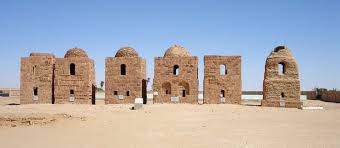By Libya Herald reporter.

28 November 2014:
Ancient Islamic tombs in the Murzuk region in Libya’s south that have survived unmolested for some 1,400 years . . .[restrict]were vandalised over the summer in attacks that went largely unreported but heralds the loss of more of the country’s important heritage sites.
“A fortified group of tombs called As-Sahaba [“The Seven”] in the Zueila region have been destroyed,” the head of the Murzuk group of culture and civil society organisations, Mohamed Ahmed Al-Sakaat, told the Libya Herald. “These were built by the first Muslims who came to Libya in the seventh century.”
The tombs were those of seven men, locally claimed to be Companions of the Prophet Mohamed. They apparently died fighting to defend the oasis town of Zueila, other east of Murzuk.
Fundamentalist extremists, some of whom view individual tombs and shrines as a form of idolatry, are believed to be behind the attack. Similar incidents have occurred in Tripoli, where historic tombs have been dug up and shrines demolished.
The incident in Zueila took place earlier in the year, some four or five months ago, Sakaat said. The area was now in ruins, he explained, adding that if there were some heritage experts who were interested, he believed they might be able to put together the remnants and rebuild the structures.
This is not the first time historic sites in the Murzuk region have been vandalised. Like the Tadrart Acacus, the area is also home to some fine examples of prehistoric rock art. However, these too have reportedly been targeted. One area – Mathan Toush – has been damaged with graffiti as, indeed, has been seen in parts of the Tadrart Acacus, which is a UNESCO World Heritage site.
The damage to the Mathan Toush, which is understood to have taken place some years ago when a tourist guide, disenchanted with his job after apparently not being paid, despoiled the prehistoric art. The damage, however, is not deemed to be overly severe. “Experts have said that the graffiti will fade and disintegrate over time,” Sakaat said, although he added that this would probably take a number of further years, possibly as many as four. [/restrict]









